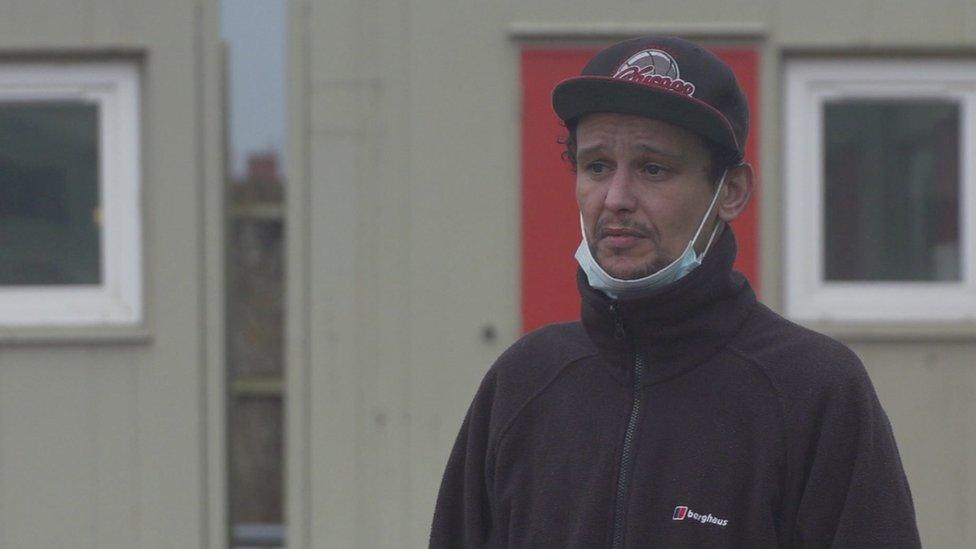Senedd election: Candidates told to prioritise all Wales' homeless
- Published
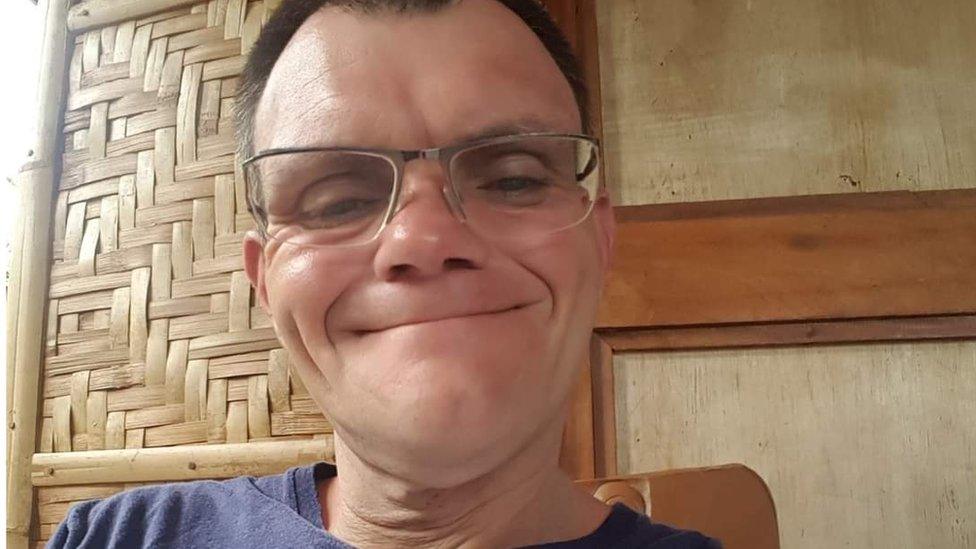
John Williams struggled to prove a local connection to Swansea, despite it being his hometown
A man has called for all those who are homeless in Wales to receive speedy help even if they do not fit into a priority group.
John Williams, 52, became homeless in Weston-super-Mare, where he had been volunteering to help homeless people.
It prompted him to return home to Swansea, where he thought he would be helped.
But it took months to prove his "local connection" - a condition on getting help if you are homeless in the city.
As part of a series looking at the issues people in Wales would like to see tackled by politicians after the Senedd election, BBC News spoke to Mr Williams about the campaign.
"My mum lived here in a nursing home, she's lived here all her life, but it still took months and all that time I was living in shelters," Mr Williams said.
"It was hard, I didn't know what to do, I was expecting to come back to where I was born, where my mum lives, and be put on the council list.

SIGN UP FOR WALES ALERTS: Get extra updates on BBC election coverage

"I didn't know which way to turn, it gave me a feeling of not belonging, like I was coming back as a newcomer and starting again."
Mr Williams was then placed in a homeless hostel, before he finally had his connection confirmed with the help of charities and moved into a one-bed flat just before lockdown.
He is now working as a Big Issue seller.
Mr Williams said while he was supporting homeless people, he saw many struggle with the same "local connection" rule.
"You just could not win," he said.
'Cycle of homelessness'
Mr Williams is now supporting a campaign with the charity Crisis to pull people out of a "cycle of homelessness".
They want to see barriers removed so everyone can access support without having to meet sets of demands first.
The charity says since 2015 one in eight people in Wales (9,261) who went to their local council for help to end their homelessness were unable to access further support, adding that the average age of death for people experiencing homelessness is 46 for men, and 43 for women.
The Housing (Wales) Act 2014 placed a legal duty on councils to prevent homelessness from happening in the first place and to help people out of it when it does and Crisis says the legislation has made a huge difference.
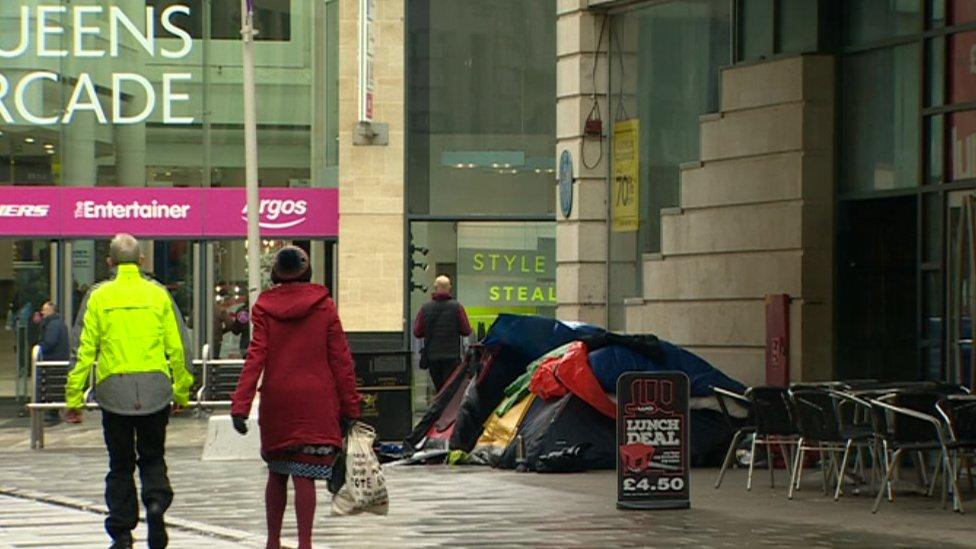
Tents used by homeless people were a common sight in Cardiff before the pandemic
But when efforts fail, it says, homelessness can be prolonged because a person must meet certain criteria before they are given support.
People who fall into the priority category for help include those with dependants, a connection to a local area and whether they can prove they have not become homeless intentionally.
But there is renewed hope as a result of the emergency response to the pandemic that ending homelessness is possible across Wales, Crisis says, due to a Welsh Government directive which saw more than 7,000 rough sleepers provided with temporary accommodation and support.

WALES ELECTION: THE BASICS
What's happening? On 6 May, people will vote to elect 60 Members of the Senedd (MSs). The party that can command the support of a majority of MSs will form the Welsh government. Find out more here.
What powers does the Senedd have? MSs pass laws on aspects of life in Wales such as health, education and transport - and have some tax powers.

Campaigners want this to be built on further, leading to a law change to remove barriers so anyone facing homelessness in Wales can access support.
What's the politicians' view?
BBC Wales asked each political party whether they support the campaign, and what they would do to tackle homelessness if elected.
Welsh Labour said it had a "proud track record" of tackling homelessness and has housed more than 7,000 people into temporary accommodation during the pandemic and made additional funding available to local authorities.
It has promised to build 20,000 low-carbon homes for social rent and introduce a scheme restricting rent for anyone at risk of homelessness.
A Plaid Cymru spokesperson said the party would change the law to ensure everyone in Wales who needs housing and homeless services can access it, abolishing the priority need system and delivering 50,000 social and affordable homes.
The Welsh Conservatives said they would introduce a "housing first" model and commit to tackling rough sleeping in Wales by 2026 by appointing a Homelessness Commissioner, as well as bringing 150 empty social housing properties back into use for people at risk of homelessness.

POLICY GUIDE: Who should I vote for?
FIRST TIME: Will 16-year-olds vote?

Propel said it would being in a new law to end "injustices" in Welsh housing, "meaning a person will simply be housed, no ifs, no buts", including compulsory targets for local authorities to bring empty properties back into use.
Reform UK said it supported the campaign, and would make it a statutory duty for councils to put a roof over everyone's head every night of the year.
UKIP said it would reduce demand and pressure on housing stock by implementing "firm and fair" immigration controls", and has pledged to end homelessness amongst veterans in the next Senedd term.
The Green Party said it wants to ring-fence funding for councils to provide shelter to every rough sleeper who wants it, and they should be given more guidance and power to control local rents.
The Liberal Democrats and Abolish the Welsh Assembly did not respond.
- Published30 March 2021
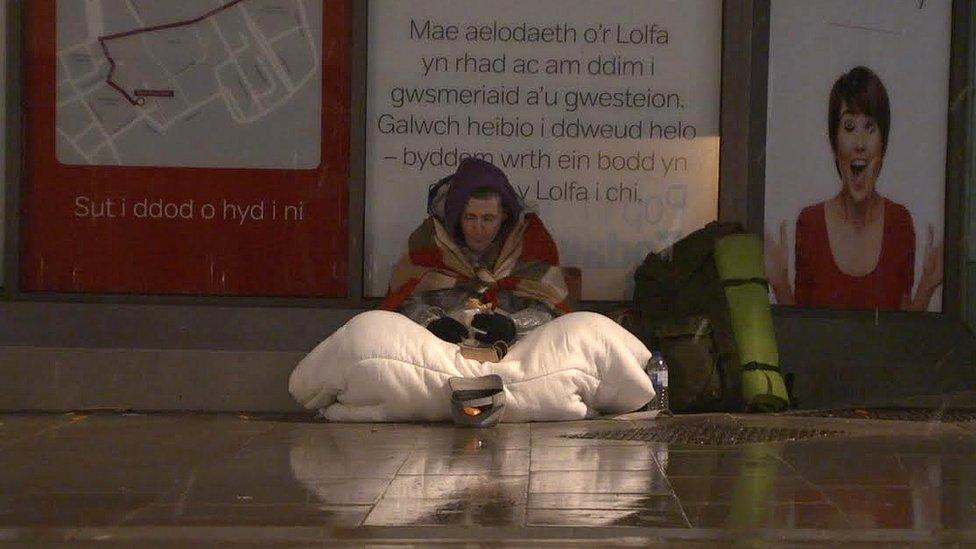
- Published12 November 2020
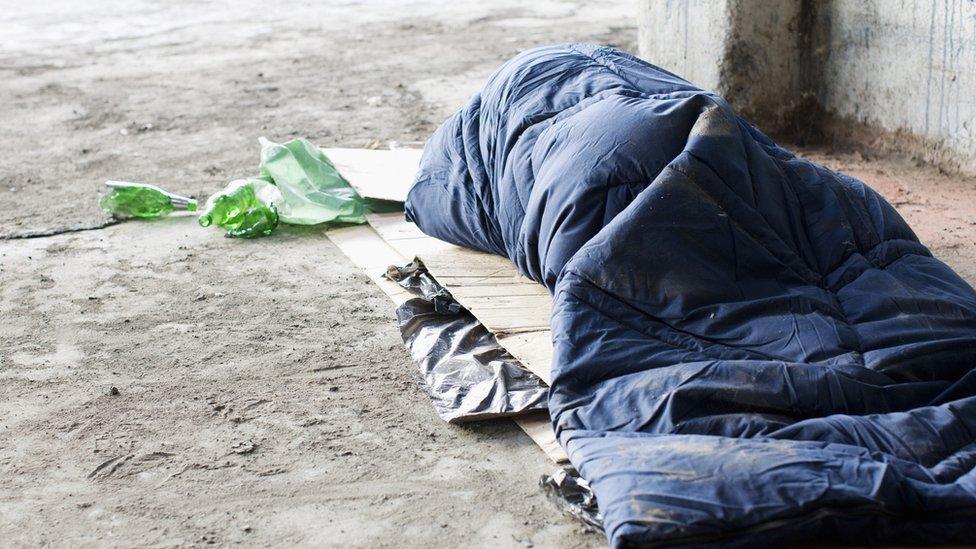
- Published9 February 2021
